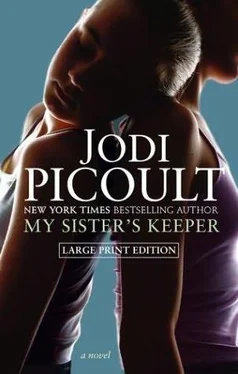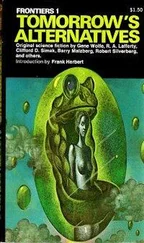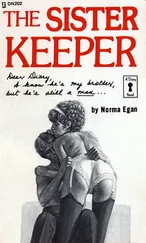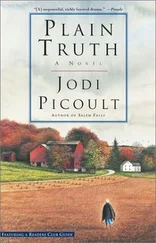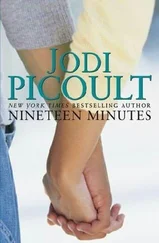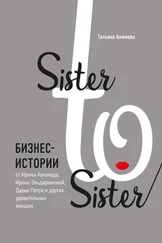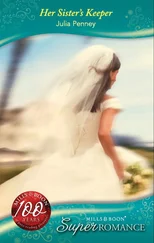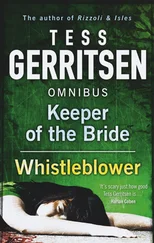Just when I think she isn't going to answer me, she speaks. "I always wanted to be a ballerina." Her arm goes up, a weak arabesque. "You know what ballerinas have?" Eating disorders, I think.
"Absolute control. When it comes to their bodies, they know exactly what's going to happen, and when." Kate shrugs, coming back to this moment, this hospital room. "Anyway," she says. "Tell me about your brother."
Kate starts to laugh. "You haven't had the pleasure of meeting him yet, I guess."
"Not yet."
"You can pretty much form an opinion about Jesse in the first thirty seconds you spend with him. He gets into a lot of bad stuff he shouldn't."
"You mean drugs, alcohol?"
"Keep going," Kate says.
"Has that been hard for your family to deal with?"
"Well, yeah. But I don't really think it's something he does on purpose. It's the way he gets noticed, you know? I mean, imagine what it would be like if you were a squirrel living in the elephant cage at the zoo. Does anyone ever go there and say, Hey, check out that squirrel? No, because there's something so much bigger you notice first." Kate runs her fingers up and down one of the tubes sprouting out of her chest. "Sometimes it's shoplifting, and sometimes it's getting drunk. Last year, it was an anthrax hoax. That's the kind of stuff Jesse does."
"And Anna?"
Kate starts to pleat the blanket in folds on her lap. "There was one year when every single holiday, and I mean even like Memorial Day, I was in the hospital. It wasn't anything planned, of course, but that's the way it happened. We had a tree in my room for Christmas, and an Easter egg hunt in the cafeteria, and we trick-or-treated on the orthopedic ward. Anna was around six years old, and she threw a total fit because she couldn't bring sparklers into the hospital on the Fourth of July—all the oxygen tents." Kate looks up at me. "She ran away. Not far, or anything—I think she got to the lobby before someone nabbed her. She was going to find herself another family, she told me. Like I said, she was only six, and no one really took it seriously. But I used to wonder what it would be like to be normal. So I totally understood why she'd wonder about it, too."
"When you're not sick, do you and Anna get along pretty well?"
"We're like any pair of sisters, I guess. We fight over who gets to put on whose CDs; we talk about cute guys; we steal each other's good nail polish. She gets into my stuff and I yell; I get into her stuff and she cries down the house. Sometimes she's great. And other times I wish she'd never been born."
That sounds so patently familiar that I grin. "I have a twin sister. Every time I used to say that, my mother would ask me if I could really, truly picture being an only child."
"Could you?"
I laugh. "Oh… there were definitely times I could imagine life without her."
Kate doesn't crack a smile. "See," she says, "my sister's the one who's always had to imagine life without me."
AT EIGHT, KATE IS A LONG TANGLE of arms and legs, sometimes resembling a creature made of sunlight and pipe cleaners more than she does a little girl. I stick my head into her room for the third time that morning, to find her in yet a different outfit. This one is a dress, white with red cherries printed across it. "You're going to be late for your own birthday party," I tell her.
Thrashing her way out of the halter top, Kate strips off the dress. "I look like an ice cream sundae."
"There are worse things," I point out.
"If you were me, would you wear the pink skirt or the striped one?"
I look at them both, puddles on the floor. "The pink one."
"You don't like the stripes?"
"Then wear that one."
"I'm going to wear the cherries," she decides, and she turns around to grab it. On the back of her thigh is a bruise the size of a half-dollar, a cherry that has stained its way through the fabric.
"Kate," I ask, "what's that?"
Twisting around, she looks at the spot where I point. "I guess I banged it."
For five years, Kate has been in remission. At first, when the cord blood transplant seemed to be working, I kept waiting for someone to tell me this was all a mistake. When Kate complained that her feet hurt, I rushed her to Dr. Chance, certain this was the bony pain of recurrence, only to find out that she'd outgrown her sneakers. When she fell down, instead of kissing her scrapes, I'd ask her if her platelets were good.
A bruise is created when there is bleeding in tissues beneath the skin, usually—but not always—the result of a trauma. It has been five whole years, did I mention that? Anna sticks her head into the room. "Daddy says the first car just pulled up and if Kate wants to come down wearing a flour sack he doesn't care. What's a flour sack?"
Kate finishes hiking the sundress over her head, then pulls up the hem and rubs the bruise. "Huh," she says.
Downstairs, there are twenty-five second-graders, a cake in the shape of a unicorn, and a local college kid hired to make swords and bears and crowns out of balloons. Kate opens her presents—necklaces made of glittery beads, craft kits, Barbie paraphernalia. She saves the biggest box for last—the one Brian and I have gotten her. Inside a glass bowl swims a fantail goldfish. Kate has wanted a pet forever. But Brian is allergic to cats, and dogs require a lot of attention, which led us to this. Kate could not be happier. She carries him around for the rest of the party. She names him Hercules.
After the party, when we are cleaning up, I find myself staring at the goldfish. Bright as a penny, he swims in circles, happy to be going nowhere.
It takes only thirty seconds to realize that you will be canceling all your plans, erasing whatever you had been cocky enough to schedule on your calendar. It takes sixty seconds to understand that even if you'd been fooled into thinking so, you do not have an ordinary life.
A routine bone marrow aspiration—one we'd scheduled long before I ever saw that bruise—has come back with some abnormal promyelocytes floating around. Then a polymerase chain reaction test—one that allows the study of DNA—showed that in Kate, the 15 and 17 chromosomes were translocated.
All of this means that Kate is in molecular relapse now, and clinical symptoms can't be that far behind. Maybe she won't present with blasts for a month. Maybe we won't find blood in her urine or stools for a year. But inevitably, it will happen.
They say that word, relapse, like they might say birthday or tax deadline, something that happens so routinely it has become part of your internal calendar, whether you want it to or not.
Dr. Chance has explained that this is one of the great debates for oncologists—do you fix a wheel that isn't broken, or do you wait until the cart collapses? He recommends that we put Kate on ALL-TRANS Retinoic Acid. It comes in a pill half the size of my thumb, and was basically stolen from ancient Chinese medics who'd been using it for years. Unlike chemotherapies, which go in and kill everything in their path, ATRA heads right for chromosome 17. Since the translocation of chromosomes 15 and 17 is in part what keeps promyelocyte maturation from happening correctly, ATRA helps uncoil the genes that have bound themselves together… and stops the abnormalities from going further.
Dr. Chance says the ATRA may put Kate back into remission.
Then again, she might develop a resistance to it.
"Mom?" Jesse comes into the living room, where I am sitting on the couch. I've been there for hours now. I can't seem to make myself get up and do any of the things I am supposed to, because what is the point of packing school lunches or hemming a pair of pants or even paying the heating bill?
Читать дальше
